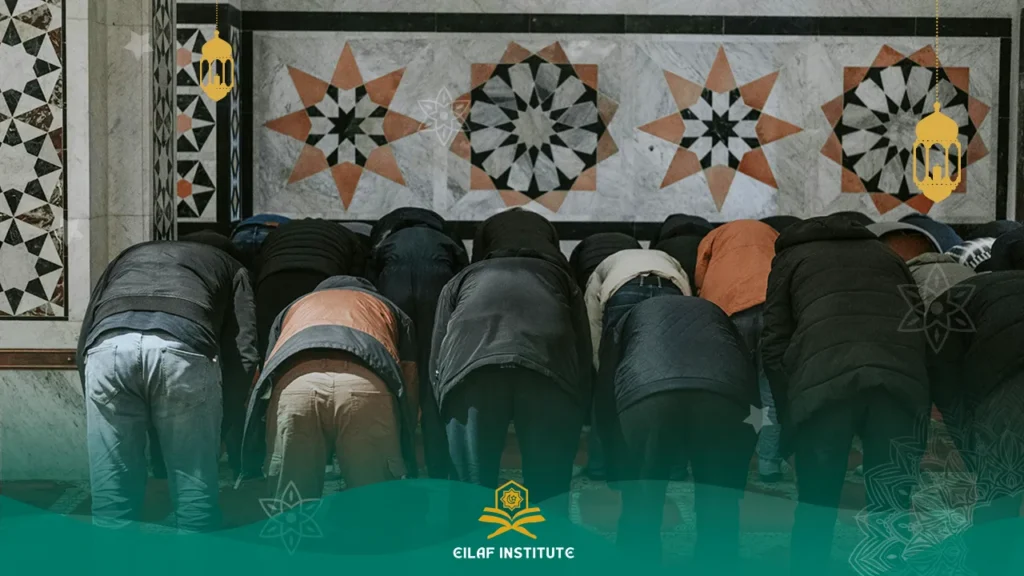If you’re asking, “What time does Dhuhr end?” you’re asking a vital question. For new Muslims and even many born into the faith, understanding the specific prayer times is a crucial step in establishing a consistent connection with Allah.
This guide will provide a clear and detailed answer to what time does Dhuhr end, explain the last time for Dhuhr prayer, and cover special circumstances where timings can be flexible.
What Time Does Dhuhr End? The Definitive Answer
The definitive answer to what time does Dhuhr end is simple: the time for Dhuhr prayer ends when the time for Asr prayer begins. This is the universally accepted rule.
So, this question is directly answered by knowing when Asr starts. Traditionally, the start of Asr is determined by the length of an object’s shadow.
The Majority View (Shafi’i, Maliki, Hanbali):
The dhuhr end time is when the shadow of any vertical object becomes equal to the length of the object itself, plus the length of its shadow at noon (when the sun is at its zenith). This moment marks the beginning of Asr prayer.
The Hanafi View:
The last time of dhuhr prayer extends a bit longer. In this school of thought, Dhuhr time ends when the shadow of an object becomes twice the length of the object itself, plus its shadow length at noon.
Book islamic studies courses now
Preferred Time vs. Permissible Time
While you can pray Dhuhr any time before the dhuhr prayer end time, it is highly recommended and more virtuous to pray it at the beginning of its time (Awwal al-Waqt).
The Prophet Muhammad (peace be upon him) emphasized the merit of performing prayers as soon as their time sets in.
- Permissible Time: The entire window from the start of Dhuhr until the start of Asr. If you are busy, it is perfectly acceptable to pray anytime within this window.
- Preferred Time: As early as possible after the Dhuhr time begins. Praying in congregation at the mosque is also highly rewarded.
So, while the last time for dhuhr prayer is right before Asr starts, aiming for the beginning of the time is best.
Read also: What Are The Fard Prayers?
Can I Combine Dhuhr and Asr Prayers?
Yes, in certain situations, Islam provides a concession (rukhsah) allowing a Muslim to combine Dhuhr and Asr prayers. Understanding when does dhuhr prayer end becomes particularly important when considering this.
This is not meant to be a regular habit but is a mercy from Allah for times of genuine difficulty. The flexibility around what time does Dhuhr end is a great example of this mercy.
Scholars have agreed upon several conditions where combining is permitted, affecting the practical answer to when does zuhr time end for an individual on that day.
Situations Permitting the Combination of Dhuhr and Asr
- Travel: When you are traveling a significant distance (typically over 80-85 km), you are permitted to combine Dhuhr and Asr, and Maghrib and Isha.
- Significant Hardship or Illness: This applies to situations where praying each prayer separately would cause immense difficulty. This relates to how long does dhuhr last in terms of its permissible window under duress. Examples include:
- A doctor performing a long surgery.
- A student in the middle of a critical, lengthy exam.
- A person with a severe illness that makes it very hard to maintain purity (wudu) for each prayer.
- Severe Weather: Extreme rain, snow, or mud that makes it dangerous or very difficult to go to the mosque for each prayer. In this case, the congregation may combine the prayers.
When combining, you can either pray both Dhuhr and Asr during Dhuhr’s time (Jam’ al-Taqdim) or pray both during Asr’s time (Jam’ al-Ta’khir). Knowing what time does Dhuhr end helps you decide which option is more suitable.
Read also about : How long does dhuhr prayer last?
Do you need more guidance?
Understanding the nuances of Salah, especially questions like what time does Dhuhr end, is a beautiful journey. If you have more questions about prayer times, how to pray, or any other topic in Islam, consider booking a free session with a knowledgeable tutor to help guide you personally.

